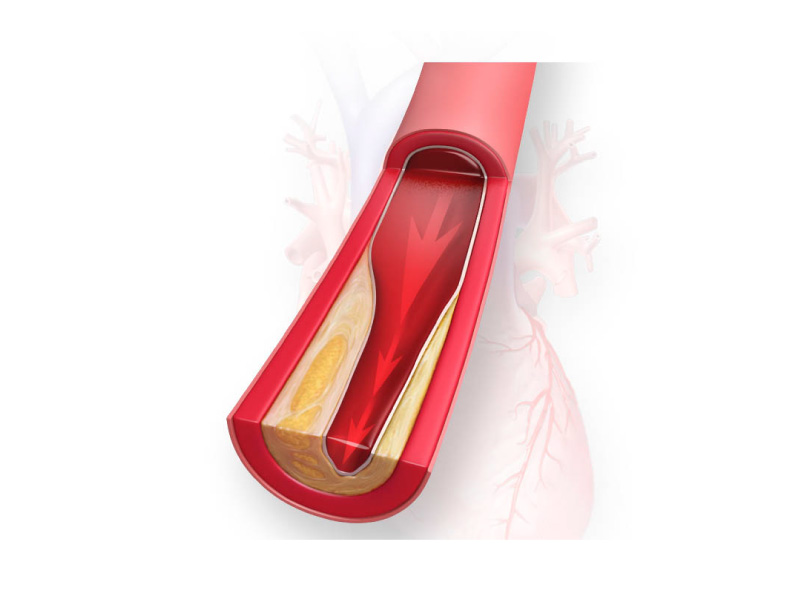Making sense of cholesterol – the good, the bad and the dietary
By Michael Merschel, American Heart Association News

Cholesterol can be confusing. But understanding it could help you live a longer, healthier life.
So in honor of Cholesterol Education Month, we asked a pair of experts to clear up five common questions.
Do my blood cholesterol numbers matter?
"The answer is yes," said Dr. Neil J. Stone, Bonow Professor in Medicine-Cardiology at Northwestern University's Feinberg School of Medicine in Chicago.
Studies show healthy people with LDL levels of 100 mg/dL or below tend to have lower rates of heart disease and stroke, supporting a "lower is better" philosophy, according to cholesterol guidelines issued by the American College of Cardiology and American Heart Association in 2018.
Older recommendations emphasized targeting specific cholesterol numbers. But today, doctors use cholesterol tests as part of a personalized assessment of overall cardiovascular risk. Those with the highest risk have the most to gain from cholesterol-lowering, said Stone, who was vice chair of the task force for the guidelines.
But "cholesterol doesn't exist in isolation," he said. "One has to think about diet and lifestyle and medication to treat the whole risk continuum of blood pressure, cholesterol, blood sugar and weight."
The guidelines recommend getting cholesterol and other traditional risk factors checked every four to six years starting at age 20. If the COVID-19 pandemic has complicated those plans, get up to date when you can do so safely, said Kristina Petersen, an assistant professor in the department of nutritional sciences at Texas Tech University in Lubbock.
I'm confused about "good" cholesterol versus "bad." What should I focus on?
When you get your blood tested, you'll probably see numbers for total cholesterol, LDL cholesterol, HDL cholesterol and triglycerides.
LDL is the so-called bad cholesterol because it increases the risk of heart disease, stroke and other health problems. HDL is dubbed the good cholesterol because having a higher level is associated with lower risk of heart disease and stroke.
Lowering LDL should be the priority, said Petersen, co-author of an AHA science advisory on dietary cholesterol and heart disease published in December in the journal Circulation.
"The most important thing is to lower LDL cholesterol, because that is what ultimately increases your risk of heart disease," she said.
Should I worry about cholesterol in food?
Many sources of cholesterol in the diet also are sources of saturated fat, Petersen said. "We do want to limit dietary saturated fat intake. And if you do that, your intake of dietary cholesterol will be low." Cutting back on saturated fat can improve your LDL number in four to six weeks, she said.
The advisory on dietary cholesterol emphasizes that a healthy diet is more important than focusing on a specific cholesterol target, and such a diet highlights fruits, vegetables, whole grains, low-fat or fat-free dairy products, lean animal protein or plant protein sources, nuts, seeds and liquid vegetable oils.
Selecting the right food may be particularly important for people who are sensitive to dietary cholesterol, which some studies suggest could be the case for roughly 1 in 4 people. A 2019 review published in JAMA of long-term studies suggested that each additional 300 milligrams of dietary cholesterol consumed per day was significantly associated with higher risk of heart disease.
"The patient should talk to the doctor about individualizing" limits on dietary cholesterol, Stone said.
Is it OK to eat eggs?
Egg yolks are known for their cholesterol, with one large scrambled egg containing 169 milligrams of cholesterol.
"You can eat eggs," Petersen said. "We suggest eating no more than one full egg per day in order to keep your cholesterol intake low, but you can definitely have eggs as part of a healthy dietary pattern."
The research is inconsistent, she said, because eggs often are consumed with foods high in saturated fat, making it hard to parse out potential harm.
And people vary, Stone said. "Some patients have two eggs a day, and their cholesterol doesn't budge. Other patients have two eggs a day and their cholesterol goes up 50 points."
Is possible to inherit high cholesterol?
High LDL cholesterol is sometimes caused by a genetic abnormality called familial hypercholesterolemia that affects an estimated 1 in 212 U.S. adults. If it's picked up early, medication combined with a healthy diet and exercise can be very effective.
The ACC/AHA guidelines say it's reasonable to check cholesterol in children as young as 2 who have a family history of early heart disease or high cholesterol.
Everyone needs to stay aware of their cholesterol levels and be mindful of the connection to overall health, even amid the pandemic, Stone said.
"This is exactly not the right time to let diet and regular exercise go – to develop habits that are not heart-healthy," he said. "This is exactly the right time to learn how to eat less, eat smarter, move more daily, and keep from gaining weight."
If you have questions or comments about this story, please email [email protected].





